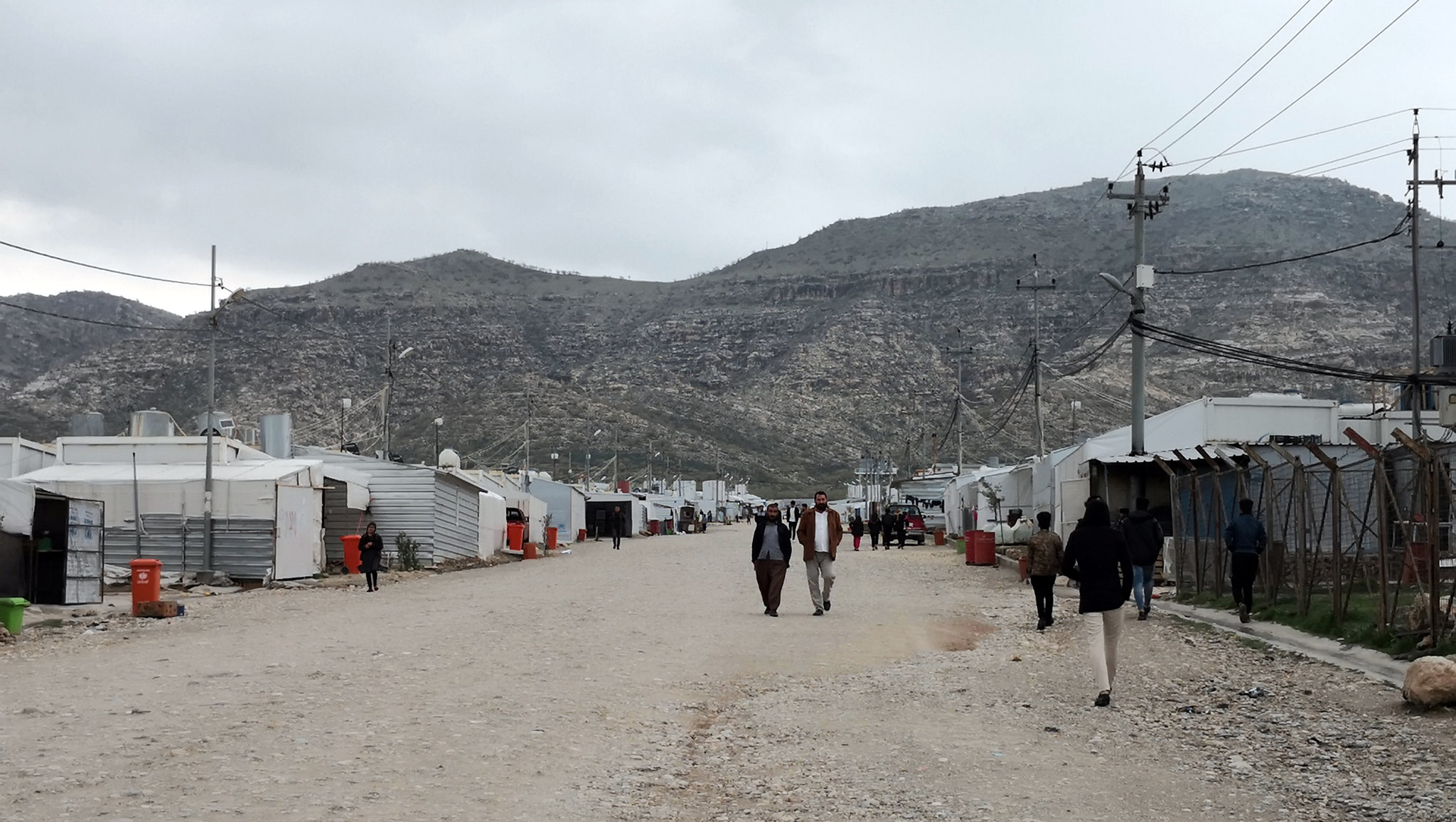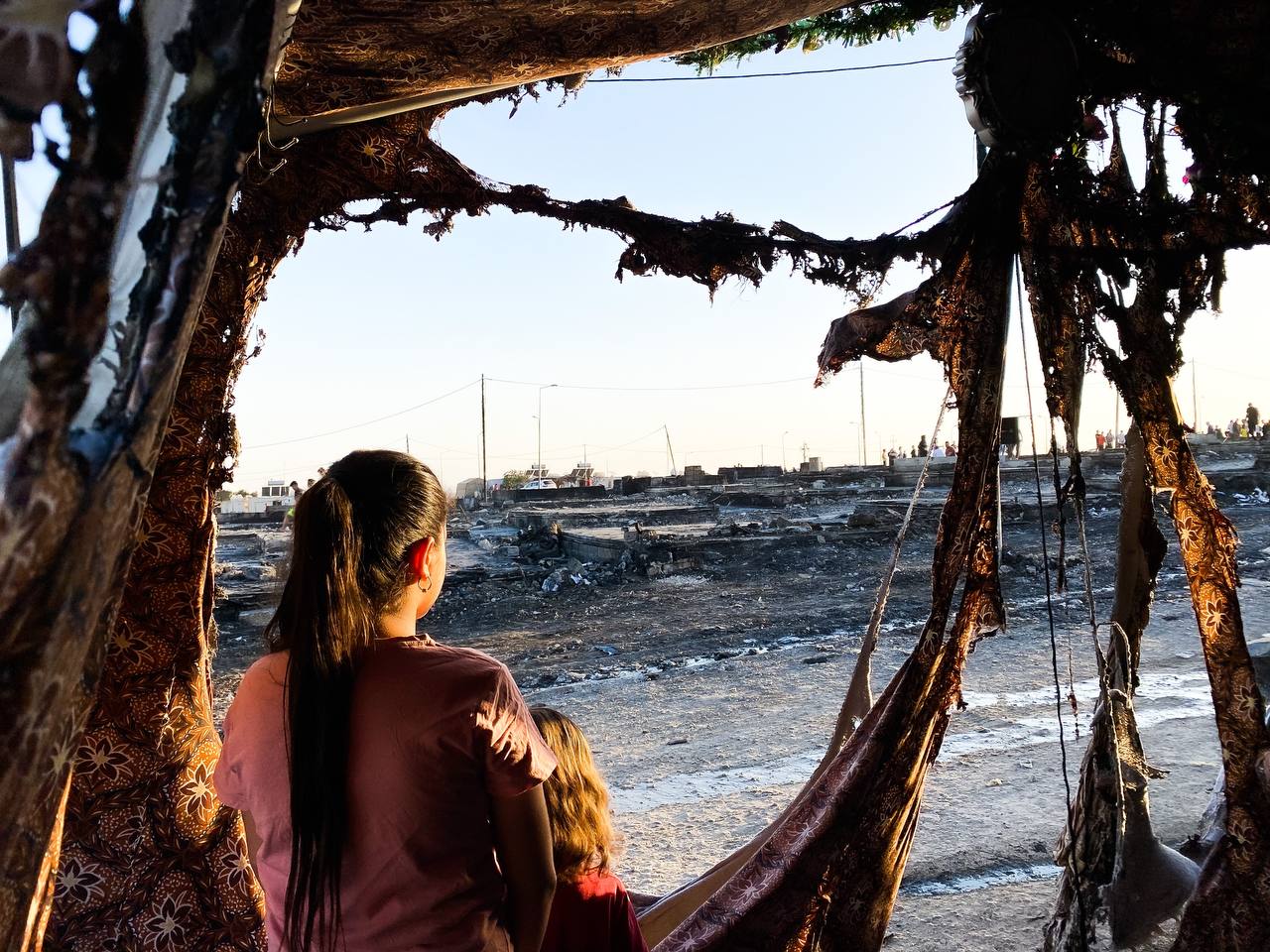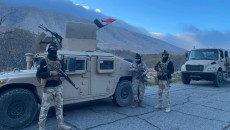The Governor of Nineveh province is seeking to find an appropriate mechanism for the return of all the displaced from Shingal (Sinjar) district to their areas after eight years they spent in the camps, for which he visited Sinjar district with a high-level security delegation.
Najm al-Jubouri, governor of Nineveh, has visited Shingal with a military delegation and met on Monday, February 28, at the headquarters of the Iraqi Army's 20th Division.
In August 2014, the Islamic State in Iraq and Syria ISIS militants attacked the Ezidis (Yazidis) in Shingal and Nineveh Plains, killing more than a thousand Ezidis, including children. The extremist militants of ISIS abducted more than 6,000 civilians, nearly 2,000 children were rescued, and the fate of about 3,000 has not been determined yet.
The surviving Ezidi community fled IS controlled hometown to safer-heaven IDP camps on Shingal Mount and in the adjacent northern Iraqi Kurdistan Region IKR where tens of thousands still live in tens of IDP camps.
There are more than 664,000 IDPs in the IKR, the majority residing 26 IDP camps, mainly Ezidis, in the northern province of Dohuk, Erbil, and Sulaymaniyah while the others live outside the camps.
Ali Omar Gabo, deputy governor of Nineveh for (Internally Displaced Persons) IDPs Affairs, said, "We are in the process of discussing new mechanisms to return all the displaced from Shingal. We held a series of meetings with security officials in Nineveh, as well as with the (Kurdistan Regional Government) KRG and organizations and Shingal meeting also was for this purpose."
We want all the displaced people in Dohuk province to return home
"We want all the displaced people in Dohuk province to return home, and the governor of Nineveh stressed this matter," Gabo said. According to information obtained by KirkukNow, the goal is for all the displaced to return to their areas of origin.
Generally, the deteriorating security situation and the lack of basic services are among the main factors impeding the return of the displaced to their areas that were retaken from ISIS in late 2015.
The fight against IS has come to end on November 13, 2015 yet it has caused severe damage to thousands of houses, and the infrastructure of the town which still misses proper power and water supply, adequate schools and standard healthcare.
Out of half million population, over 350,000 Ezidis fled Shingal to IKR and Shingal Mount. About 100,000 migrated to Europe, USA, Canada and Australia and over 100,000 are still living under tents in tens of camps for Internally Displaced Persons IDP in the adjacent Kurdish region.
The Deputy Governor of Nineveh for IDPs Affairs said, "At the present time, the security situation in Shingal is fine and under the control of the security forces. The local government in Nineveh intends to implement a number of service projects in Sinjar district during this year."
End of last year, the Iraqi government decided to allocate an amount of 28 billion dinars (20 million USD) for the reconstruction of Shingal, for which the local administration of Nineveh formed a special committee to oversee how to spend the budget.
A security source in Shingal district, who attended Shingal meeting, anonymously said, "Najim al-Jibouri said in the meeting that all facilities must be provided for the return of the displaced and the improvement of the security situation."
The security situation in Sinjar is witnessing a state of tension due to the large number of security forces present there, one of the reasons for the reluctance of the displaced to return.
The armed factions in Shingla beside Iraqi army and police are pro-Shiite Popular Mobilization Forces PMF and groups affiliated to the Kurdistan Workers’ Party, fighting Turkey and holding Iraqi territories, which were formed by the people of Shingal post-ISIS war.

Dohuk, 2020: Qadia camp, shelter for the Ezidi IDPs. Khairy Ali
Azad Hussein, co-chair of the Autonomous Administration Council in Sinjar, said, "We decided not to participate in the meeting with the governor of Nineveh because Shingal district has no security problems.
The Autonomous Administration Council in Shingal was formed at the end of 2019 by a section of the local components with the aim of managing the affairs of the war-ravaged town. The council has elected a commissioner and mayors for its sub-districts without returning to the federal government and the KRG.
It is better to conclude a new agreement
"The non-return of the displaced has absolutely nothing to do with the security aspect. It is better to conclude a new agreement between the Kurdistan Democratic Party (KDP), the Iraqi government and all other forces and authorities in Shingal to (jointly) manage the affairs of the district."
This comes at a time when the Iraqi federal government and the KRG in October 2020 have concluded an agreement stipulating the appointment of a new mayor for Shingal district, and for the local police, the intelligence service and the National Security Service to manage the security file in the district center, beside relocation of the armed forces of the Iraqi government on the outskirts.
Under the agreement, forces close to the PKK must evacuate their headquarters in the area.
The Autonomous Administration Council in Shingal rejected the agreement, pointing out that the agreement did not give any role to the people of Shingal as it was concluded without taking their opinion into account.
Shingal district, 120 km west of Mosul, is administratively part of Nineveh province and one of the disputed territories between Baghdad and Erbil.






